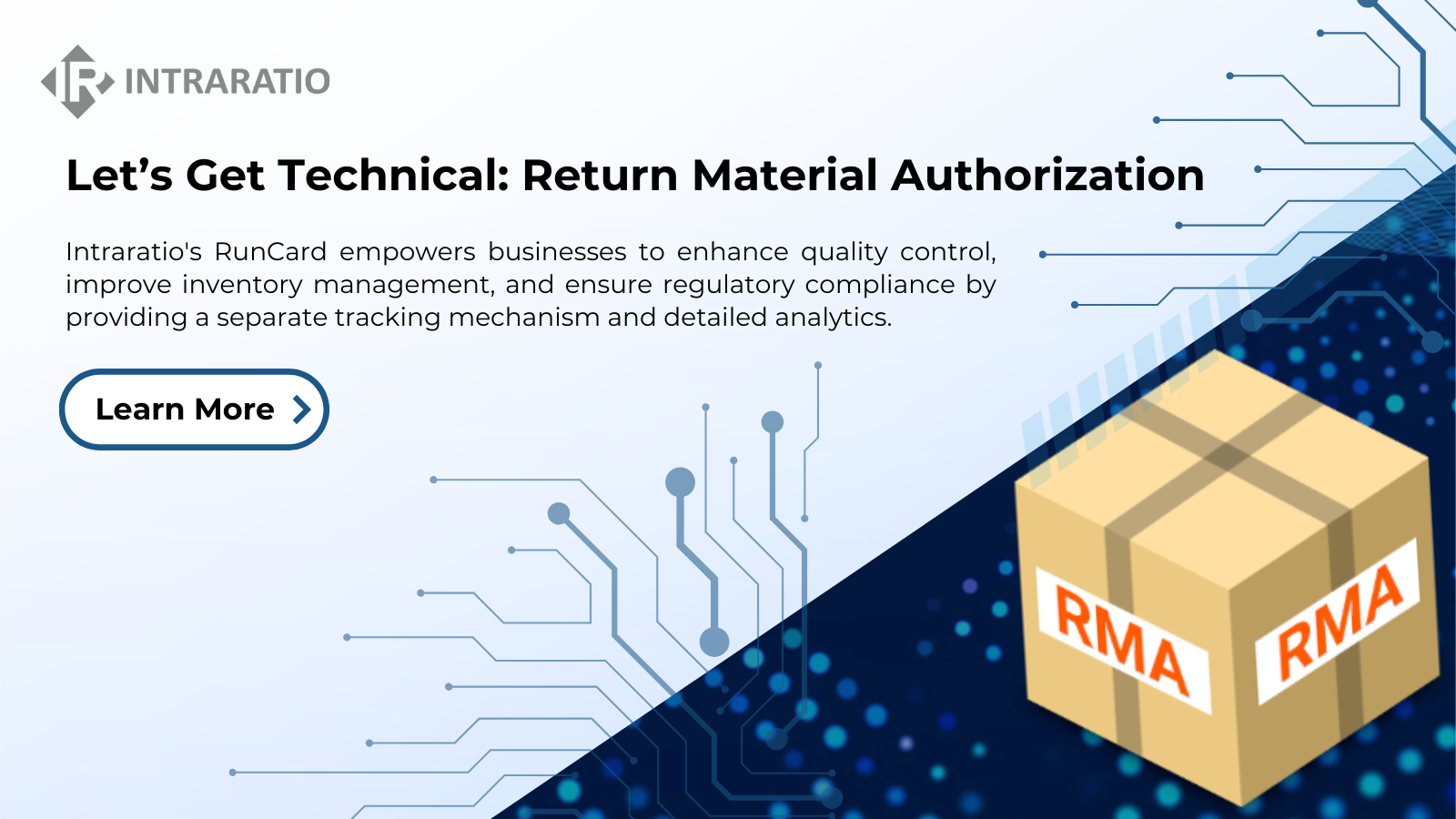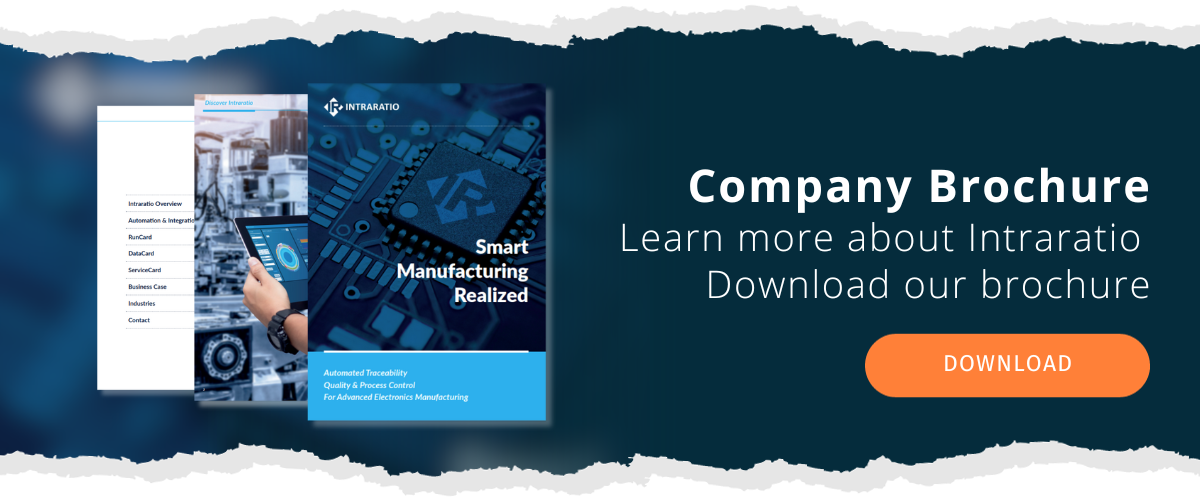Machine Management leveraging Intraratio's RunCard MES
Let's Get Technical!
Watch this video on how to leverage the comprehensive suite of machine...
By: Steven Chun on Sep 09, 2024

In today's competitive business landscape, efficient and effective handling of returns is crucial for maintaining customer satisfaction and minimizing operational costs. RunCard's dedicated RMA process offers a comprehensive solution to streamline the return management process, from initial receipt to final resolution. By providing a separate tracking mechanism and detailed analytics, RunCard empowers businesses to enhance quality control, improve inventory management, and ensure regulatory compliance.
Watch this video to see a technical walkthrough of the RMA receiving process in RunCard.

RMA, or Return Material Authorization, is a process used by businesses to manage the return of products by customers. It is typically used when a customer returns a product due to defects, damage, or other issues, such as dissatisfaction with the product or receiving the wrong item. The RMA process is essential for handling returns, repairs, replacements and refunds in an organized and trackable manner.
Handling RMAs is complex due to the need for coordination across multiple departments, managing data accurately and integrating various systems. Delays and communication gaps can lead to customer dissatisfaction, while high operational costs and return fraud pose significant financial risks. Ensuring consistent quality control and compliance with regulations adds further challenges, especially in managing reverse logistics and warranty terms. As companies scale, the volume of RMAs increases, necessitating robust systems and continuous improvement to maintain efficiency and customer satisfaction.
RunCard features a dedicated RMA receiving process, distinct from the regular receiving workflow, ensuring that only products with a previously processed serial number in the system are accepted against an RMA number. This safeguards against the erroneous receipt of items not originating from the factory. Once received, RMAs are tracked separately from regular production items, allowing users to filter by RMA numbers easily, monitor the status, and quickly access transaction and defect histories for effective root cause analysis.
Mastering Rework in Manufacturing: Ensuring Traceability and Quality at Every Step - Explore best practices for managing rework, enhancing production quality control, and mastering product traceability methods in manufacturing
Traceability for Surface Mount Technology (SMT) Process - Enhance SMT efficiency and quality with traceability. Learn how barcode scanners, data logging, MES, standardization, and training drive success
Machine data integration for automated traceability & process control - Let's dive into the details of machine integration on how it enables automated traceability and process control
Let's Get Technical!
Watch this video on how to leverage the comprehensive suite of machine...
Let's Get Technical!
Watch this video to discover how you can leverage Intraratio's RunCard...
While optimizing your processes to eliminate rework is a critical goal of...